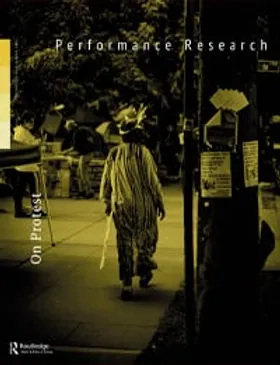William Shakespeare: in his time, for our times
William Shakespeare: in his time, for our times
Michael Rosen
(London
A ticket for a Shakespeare production at Stratford
For this reason Michael Rosen’s new book is a welcome attempt to rescue Shakespeare from his status as a diplomat for a non-existent “Merrie Olde England” and show that the real Shakespeare was much less safe than the sanitized one we know today. Rosen argues that the Shakespeare of today comes to us through the prism of various institutions. Whether we receive his work from the Classical Theatre, government curriculum, or Mel Gibson’s imagination, the meaning is affected by the medium through which it is transmitted, and this often serves to mask the political undertones of Shakespeare’s plays.
Take Romeo and Juliet for example, which is usually taught as the story of two “star-crossed lovers” who are kept apart by fate. Though they have fallen in love, they are prevented from being together because of an ongoing feud between their two families. But this is only part of the story. Rosen makes the point that the real conflict of the drama is not between the two families as much as between Juliet and her father. The Capulet family is extremely wealthy and is trying to use marriage to climb another notch up the hierarchy of the ruling class. The conflict arises when Juliet rejects this, opting to be with the one she loves despite her father’s threat that if she does not marry his protégé, she will be cast out of the house to “hang, beg , starve, die in the streets,/ For by my soul , I’ll ne’er acknowledge thee.”
While the curriculum tends to focus on the “universal themes” of love and hate and the contrast of light and dark imagery, it ignores the extremely political base of the play: should a young woman have ownership of her body or is it a commodity to be sold by her father?
Rosen discovers the political Shakespeare by situating him in his historical context. The background to Shakespeare’s era is the rise to power of the bourgeoisie and its extremely bloody vying for state power with the landed aristocratic class. The question of how best to run society is posed over and over in Shakespeare’s texts, from Macbeth to Julius Caesar to the astonishingly radical Coriolanus.
This is part of what leads Rosen to claim that Shakespeare wrote “dialectically”, a concept that I wished had been expanded on in greater detail. Rosen notes that many of the plays center on arguments, debates and fights between representatives of these rival classes. King Lear, for example, laments the younger generation’s loss of reverence for monarchical authority while his son, Edmund the Bastard, reflects the values of the bourgeoisie by seeking money and power through his own devious methods, in spite of the spectre of fate and tradition being against him. This is not a mechanical procedure; what we see is the way that individuals react to the social forces and ideas around them. But labelling this “dialectal” seems to imply a consciously designed methodology, where it is more likely that Shakespeare was simply reflecting the power struggles around him in his characters.
Rosen’s book touches on many other subjects, such as Shakespeare’s treatment of the under-classes, who sometimes come off as a dangerous rabble while at other points they are imbued with a kind of subaltern wisdom. Rosen avoids the trap of trying to pigeonhole Shakespeare’s personal politics and focuses instead on the conflict of ideas that come out of the plays. It is this Shakespeare that formed such an influence on twentieth-century playwrights like Bertolt Brecht and Tony Kushner and makes him a potentially dangerous and radical figure in literature to this day. Rosen's book, though short, goes a long way towards reconstructing that figure for our times.



Comments
Post a Comment